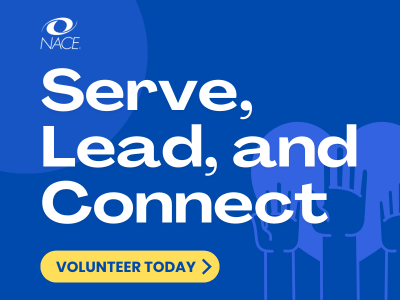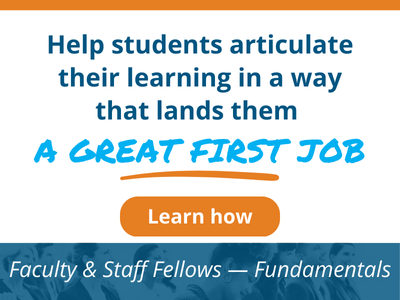Spotlight for Career Services Professionals
Contingent on the Nevada governor’s directives regarding the coronavirus pandemic and in conjunction with the Nevada System of Higher Education, the University of Nevada, Las Vegas (UNLV) began the process of returning to on-campus operations, using procedures that maintain social distancing and mitigate risk.
“The College of Engineering at UNLV organized a committee comprised of faculty, staff, and administrators who worked together to write a set of guidelines for our return to campus on August 3,” Marian Mason, UNLV’s engineering career services (ECS) coordinator.
“The committee worked on the guidelines for approximately two months and considered not only the health and safety of our students, but also that of faculty and staff—particularly those with compromised immune systems.”
The College of Engineering’s Reopening Implementation Committee used Centers for Disease Control and Prevention (CDC) guidelines as guidance in developing its reopening plan. The CDC guidelines aim to slow the spread of COVID-19 and minimize the infection of students, faculty, staff, and administrators. As the committee explains, the CDC guidelines are based on three risk tiers:
- Lowest risk—Faculty and students engage in virtual-only learning options, activities, and events.
- More risk—Small in-person classes, activities, and events. Individuals remain spaced at least six feet apart and do not share objects (e.g., hybrid virtual and in-person class structures or staggered/rotated scheduling to accommodate smaller class sizes).
- Highest risk—Full-sized, in-person classes, activities, and events. Students are not spaced apart, share classroom materials or supplies, and mix between classes and activities.
The reopening plan developed by the College of Engineering’s committee is based on a scenario of “more risk,” with a blend of virtual and in-person offerings.
The committee explains that all student services that can be effectively provided remotely—including advising and career services—will mostly continue to be conducted this way. Contact between faculty and staff will be minimized by avoiding walk-ins to offices and maximizing the use of telephone, emails, and computer cams.
“The factors that most influenced us for fall were prioritizing everyone’s safety, while still managing to stay connected,” Mason explains.
“The hybrid approach was the solution that received the most agreement by our committee.”
Upon their return to campus, the career services staff will offer in-person coaching appointments. Fall hiring events are expected to be virtual at this time. Meanwhile, in-person employer interviews may take place on campus only, while implementing all guidelines issued by the CDC.
ECS staff will use masks (and possibly gloves) and hand sanitizer, and practice social distancing.
“For in-person meetings, we may use a Plexiglas partition,” Mason explains.
“We also may be asked to rotate days in the office with remote work from home.”
ECS will facilitate virtual calls and/or interviews by using Google Hangouts, WebEx Conferencing, or Zoom.
“We will only allow in-person interviews if an employer insists on coming to campus,” Mason says.
“If that happens, a designated space in the lobby of [the building that houses ECS] or in one our conference rooms will be arranged to adhere to CDC’s social distancing guidelines. ECS is requiring participants in on-campus interviews to wear a mask, follow social distancing guidelines, and not shake hands.”
Mason says that challenges she and her colleagues face in this reopening planning include listening to concerns about health privacy, while keeping everyone as safe as possible.
“My advice to my career services colleagues is to be as patient with your planning committee as possible and to listen to all of their fears and concerns,” she says.
“This is new territory for us all, and anxiety is reduced when people feel that they are truly heard.”





